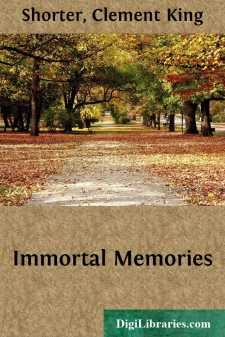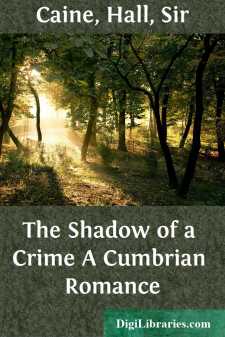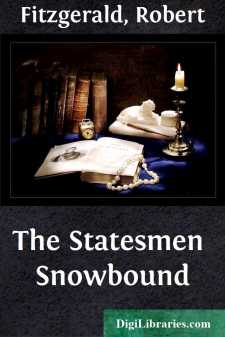Categories
- Antiques & Collectibles 13
- Architecture 36
- Art 48
- Bibles 22
- Biography & Autobiography 813
- Body, Mind & Spirit 142
- Business & Economics 28
- Children's Books 14
- Children's Fiction 11
- Computers 4
- Cooking 94
- Crafts & Hobbies 4
- Drama 346
- Education 46
- Family & Relationships 57
- Fiction 11828
- Games 19
- Gardening 17
- Health & Fitness 34
- History 1377
- House & Home 1
- Humor 147
- Juvenile Fiction 1873
- Juvenile Nonfiction 202
- Language Arts & Disciplines 88
- Law 16
- Literary Collections 686
- Literary Criticism 179
- Mathematics 13
- Medical 41
- Music 40
- Nature 179
- Non-Classifiable 1768
- Performing Arts 7
- Periodicals 1453
- Philosophy 64
- Photography 2
- Poetry 896
- Political Science 203
- Psychology 42
- Reference 154
- Religion 513
- Science 126
- Self-Help 84
- Social Science 81
- Sports & Recreation 34
- Study Aids 3
- Technology & Engineering 59
- Transportation 23
- Travel 463
- True Crime 29
Sort by:
by:
Various
In this dreadful crisis, Walter pressed as hard as he could against the rocky crag, having but one hand at liberty to defend himself against the furious attack of the bird. It was quite impossible for him to get at his axe, and the force with which he was assaulted caused him nearly to let go his hold. He tried to seize the vulture's throat and strangle it; but the bird was too active, and made...
more...
PREFATORY The following addresses were delivered at the request of various literary societies and commemorative committees. They amused me to write, and they apparently interested the audiences for which they were primarily intended. Perhaps they do not bear an appearance in print. But they are not for my brother-journalists to read nor for the judicious men of letters. I prefer to think that...
more...
by:
Anonymous
THE FINDING OF JOHN EVELYN'S MS. DIARYAT WOTTON. The MS. Diary, or "Kalendarium," of the celebrated John Evelyn lay among the family papers at Wotton, in Surrey, from the period of his death, in 1706, until their rare interest and value were discovered in the following singular manner. The library at Wotton is rich in curious books, with notes in John Evelyn's handwriting, as well as...
more...
INTRODUCTION Of the making of books by individual authors there is no end; but a cultivated literary taste among the exceptional few has rendered almost impossible the production of genuine folk-songs. The spectacle, therefore, of a homogeneous throng of partly civilized people dancing to the music of crude instruments and evolving out of dance-rhythm a lyrical or narrative utterance in poetic form is...
more...
by:
Horatio Alger
A YOUNG CARPET-BAGGER. "Twenty-five cents to begin the world with!" reflected Frank Kavanagh, drawing from his vest-pocket two ten-cent pieces of currency and a nickel. "That isn't much, but it will have to do." The speaker, a boy of fifteen, was sitting on a bench in City-Hall Park. He was apparently about fifteen years old, with a face not handsome, but frank and good-humored,...
more...
by:
Hall Caine
CHAPTER I. THE CITY OF WYTHBURN. Tar-ry woo', tar-ry woo',Tar-ry woo' is ill to spin:Card it weel, card it weel,Card it weel ere you begin.Old Ballad. The city of Wythburn stood in a narrow valley at the foot of Lauvellen, and at the head of Bracken Water. It was a little but populous village, inhabited chiefly by sheep farmers, whose flocks grazed on the neighboring hills. It contained...
more...
THE FUNERAL Toward the close of the —th Congress I was designated a member of a committee on the part of the House to accompany the remains of the late Senator Thurlow to their last resting-place at the old home in Kentucky. And it might be well to state here that I am quite aware that some of my ungrateful countrymen apply the spiteful term "junket" to a journey of this description. When one...
more...
by:
Mayne Reid
Souvenirs. Land of the nopal and maguey—home of Moctezuma and Malinché!—I cannot wring thy memories from my heart! Years may roll on, hand wax weak, and heart grow old, but never till both are cold can I forget thee! I would not; for thee would I remember. Not for all the world would I bathe my soul in the waters of Lethe. Blessed be memory for thy sake! Bright land of Anahuac! my spirit mounts...
more...
by:
Susan Warner
CHAPTER I. "He that has light within his own clear breast,May sit i' th' centre and enjoy bright day."MILTON. The farming plan succeeded beyond Fleda's hopes thanks not more to her wisdom than to the nice tact with which the wisdom was brought into play. The one was eked out with Seth Plumfield's; the other was all her own. Seth was indefatigably kind and faithful. After his...
more...
The Road Through the San Fernando Valley, toward the hills of Calabasas runs that old road, El Camino Real of the early Mission days. And now replicas of old Mission bells, each suspended in solitary dignity from a rusted iron rod, mark intervals along the dusty way, once a narrow trail worn by the patient feet of that gentle and great padre, JunÃpero Serra,—a trail from the San Gabriel Valley...
more...











